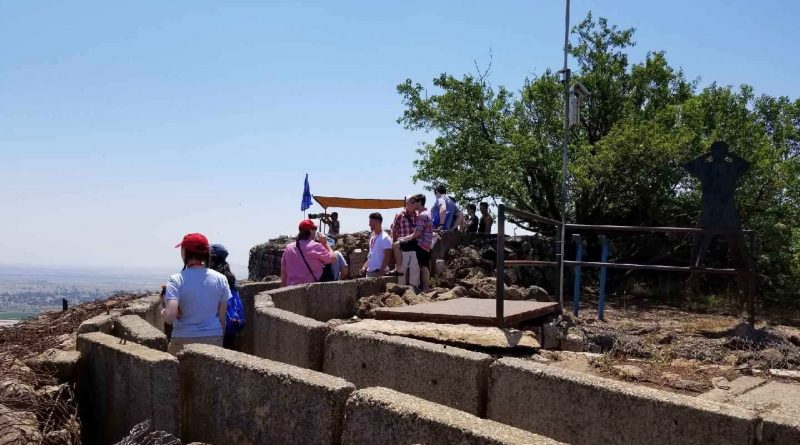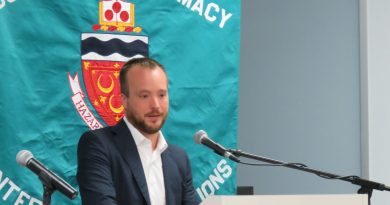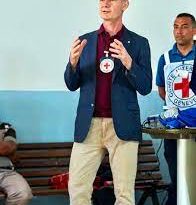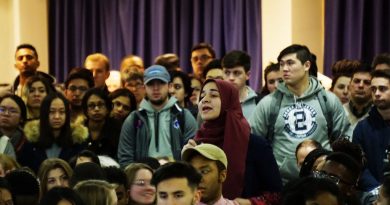Summer Spotlight: A Visit to Israel
Jacob Abel
Staff Writer
Imagine a country with beautiful beaches, bustling modern cities, and a vibrant economy. Now imagine that this country is also home to some of the holiest sites in the three Abrahamic religions, one of the most complex security situations in the world, and still has faced criticism since its inception as a state. This scenario describes the complexity of the state of Israel.
I had the chance to visit Israel last month in order to study counter-terrorism and was able to get some insights on the complex relationship between the Israelis and Palestinians. After spending two weeks in Israel one of my biggest takeaways was that the international media does not do the best job of covering all of the viewpoints that one will see in Israel.
I traveled to Israel approximately a month after the U.S. opened its embassy in Jerusalem and declared Jerusalem the capital of the state of Israel. I had the chance to speak to a few Israelis about the embassy move by the United States, and almost all of them were pleased.
I stayed about a mile from the embassy and while driving through the area around the embassy there were strings tied above the streets holding American and Israeli flags. It should come as no surprise that Israelis support the decision by President Trump to move the embassy as the people of Israel see Jerusalem as the rightful capital.
However, the embassy move brought international criticism on the United States as many nations saw the move as causing more conflict and derailing any potential peace process that may take place in Israel. The move was clearly not popular with the Palestinians, according to the BBC.
The BBC quoted the President of the Palestinian Authority, Mahmoud Abbas as saying that the U.S. is “abdicating its role as a peace mediator.” The statement from Abbas was just one of many from leaders of Muslim countries around the world including the leaders of Saudi Arabia and Iran, condemning the decision by the Trump Administration. The decision even brought condemnation from many European leaders including the Pope who stated, “I cannot silence my concern over the situation that has emerged in recent days.”

Being in Israel so recently after the U.S. embassy opened, I clearly noticed that there was a much different feeling within the country than one would notice when watching Western media coverage.
The feeling of the embassy move may very much be tied to the current security situation in Israel. The number of terrorist attacks in Israel has been dropping significantly over the last few years, and in talking with those who reside in the country, Israel is becoming increasingly comfortable with the status quo.
It see’s the Trump Administration as being a much more reliable ally than the Obama administration, not only because of the embassy move but as well as the decision by the United States to pull out of the Iran deal.
While there was strong condemnation of the embassy move by the international community, most of the Arab world is no longer willing to take significant action to try and help the Palestinians because Israel has created strong bonds with its neighbors. It has a strong relationship with Egypt in fighting terrorism and Israel has formed better relations with countries such as Saudi Arabia as they have a common enemy in Iran. These relations, along with Israel’s growing economy, has helped create more desirable conditions within the country.
In further discussing relations between the Israelis and the Palestinians the importance of security was heavily stressed by Israeli officials. In a tour of Jerusalem by Miri Eisin, who worked in Israeli military intelligence for over 20 years and as a spokesperson in Prime Minister Benjamin Netanyahu’s office, he heavily stressed on how the western media discusses security.
Eisin stated that most western media covers the Israeli-Palestinian conflict through the humanitarian lens. This means that the media tends to cover the struggles of the Palestinian people and which, according to Eisin, sometimes sees Israel as an occupying force that may have negative impacts on the Palestinians. However, while this view is valid, there is still the security perspective that Israel struggles with.
Shortly before and during the time of the opening of the US embassy masses of Palestinians in Israel rushed many spots along the border fence between the two territories. Israel received a lot of criticism of its handling of these people, due to the fact that it fired live ammunition into the crowds and killed hundreds of Palestinians. Many Israeli officials made the argument that Israel was defending its borders, however, there is more to this argument that deserves to be heard.
Eisin noted that the key statistic in the large number of Palestinians rushing the Israeli border is not 40 or 50 thousand people, but three. Three is the key figure because Israel is not necessarily as concerned with the 40 or 50 thousand that rush the border fence but rather the 3 individuals who hide among the masses so that they may carry out a terrorist attack inside Israel. This is why many Israelis feel that the outside world does not necessarily understand its perspective as it focuses largely on the humanitarian perspective of the conflict and not on the security perspective.
Within Gaza, there seems to be a bit of a power struggle between the Palestinian Authority, the recognized governing body, and Hamas. This conflict can be seen in how Israel deals with the threat it faces from Hamas.
Recently Hamas has been tying ‘Molotov cocktails’ and other flammable objects to kites and flying them over the border fence along the Gaza strip. This scenario offers a good example of how groups, like the Hamas, are becoming more innovative and how Israel is having to become more creative in coming up with solutions to deal with these threats.
That Hamas has a lot of influence in the Gaza Strip most likely due to the fact that the unemployment rate is around 44 percent. Hamas gains some authority because it does have some civilians on its payroll, giving them some economic relief. I heard a few solutions on how to try and create some economic growth in Gaza among some Israeli officials, the most notable of which was to build islands off the cost where those living in Gaza could expand.
Israel is currently situated in on of the most conflict-ridden areas on the planet and the state of Israel is having to adjust for this reality. It shares a border with Syria which is in the middle of a civil war, the Assad regime is backed by forces from Iran and Hezbollah, both of which are enemies of Israel, and recently Israel has launched airstrikes against all three entities in order to stop the transfer of advanced weapons which could be used against Israel in the future.
Many of the states in the Middle East are against Iran gaining more influence than it already has. Allowing Israel to create better relationships with its neighbors. This past February Prime Minister Netanyahu told UN Secretary-General, Antonio Guterres,“They won’t build their bases in Syria-we’ll act against them.” This determination to push back against Iran is why Prime Minister Netanyahu was so happy when President Trump pulled the United States out of the Iran deal.
There was a feeling in Israel, and across the Middle East, that the United States could have gotten a better deal and that it should have negotiated harder. Whether or not a better deal was possible is still up for debate, however, a tougher stance by the United States during negotiations may have been more welcomed.
One of the programs that is not often discussed, but that is very important in terms of Israel’s standing with its neighbors is the ‘Good Neighbor Initiative.’ Through this project, Israel brings in Syrian civilians who require medical attention in Israel and gives them medical treatment. This treatment is paid for by Israeli taxpayers and the patients are sent back to Syria once their treatment has concluded.
Israel has treated over 6,000 civilians through this initiative. Israel helps all those who they can, however, they do not necessarily screen all those that they help. This does leave the risk that Israel could be giving medical treatment to those who are seeking to undermine it as a state.
This initiative is a great way for Israel to win over hearts and minds, and that seems to be one of the main purposes of the initiative as well as a genuine concern for those living in Syria but it is yet to be seen how effective it will be in doing so. There is some hesitation in highly publicizing the program because those who are found out to have received care from the Israeli government can be killed once they return back to Syria.
Overall the situation in Israel is extremely complex and the differing viewpoints in the region only making solving any issues more difficult. The decision to move the U.S. embassy has brought the ability of the U.S. to be a peacemaker in the region into question. Only time will tell if the Trump Administration can try and broker a peace deal. In any deal governing over Jerusalem will be key provision and it is yet to be seen if any ground can be made on this issue.




